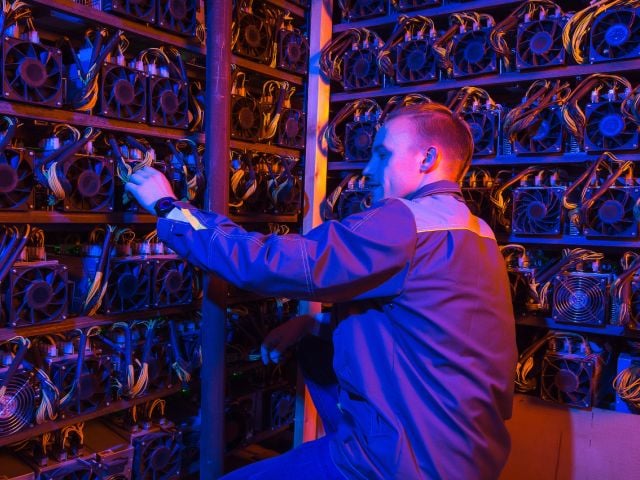WASHINGTON – The Environmental Working Group today applauds New York Gov. Kathy Hochul, a Democrat, for signing into law a bill that places a two-year pause on cryptocurrency mining in the state. It’s the first state freeze on cryptocurrency mining, which harms the climate by wasting enormous amounts of electricity.
The law places a moratorium on new and renewed air permits needed to operate fossil fuel power plants that provide the electricity for a cryptocurrency mining process known as proof of work. It also requires New York’s Department of Environmental Conservation to study the environmental impacts of cryptocurrency mining.
“Digital currencies that rely upon proof of work are wasteful by design,” said Scott Faber, EWG’s senior vice president for government affairs. “The incentives baked into digital assets like bitcoin demand more and more electricity – not less – at a time when all of us need to use electricity more efficiently.
“It’s not just the climate that’s harmed by the growing electricity use by bitcoin mines. Local communities are also affected by increased air and water pollution when bitcoin mines revive or extend the life of fossil energy plants.
“Gov. Hochul is right to make New York the first state in the nation to pump the brakes on bitcoin and other cryptocurrencies that threaten our climate and our communities.”
Between 2017 and 2022, annual estimated electricity demand from bitcoin mining increased from 7 terawatt-hours, a measure of electricity, to more than 90 terawatt-hours. By contrast, electricity demand by comparable sectors has not increased – and even declined in some. Data centers have not hiked their electricity demand, even though internet traffic and data center workloads have ramped up significantly.
Cryptocurrency mining doesn’t need to waste electricity, since much more energy efficient processes, like proof of stake, exist as alternatives to proof of work. Ethereum, second only to bitcoin in market capitalization, recently “merged” to adopt proof of stake.
“The recently completed ethereum merge and past code changes show that change by the bitcoin community is possible – just like the changes we’ve all made to how we power our homes and cars and how we grow our food,” Faber said. “Every industry can reduce its electricity use, including the financial sector. Adding more electricity demand – as proof of work mining will ultimately require – moves us in the wrong direction.
“But there is no requirement – under current law – that proof of work mines must be powered by renewable energy or be more energy efficient. We will need all the clean energy we can get to power our homes, cars and businesses. We should not divert clean energy to an inherently wasteful use of electricity.
“We’re at a crossroads. The merge shows what’s possible. The bitcoin community should follow ethereum’s lead. But regulators and legislators should not stand on the sidelines.”
EWG has joined Greenpeace USA in launching a national campaign to shed light on the electricity and climate implications of bitcoin mining and its effect on our climate goals. Find out more here about the campaign, Change the Code, Not the Climate.
###
The Environmental Working Group (EWG) is a nonprofit, non-partisan organization that empowers people to live healthier lives in a healthier environment. Through research, advocacy and unique education tools, EWG drives consumer choice and civic action.


